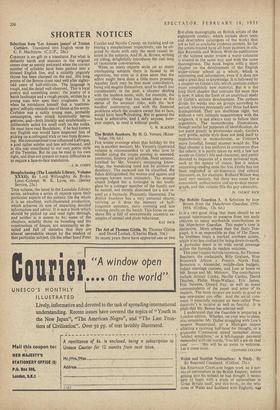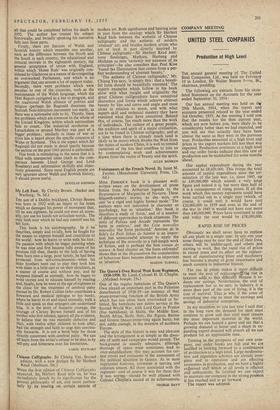SIR REGINALD COUPLAND began work on a sur- vey of
nationalism in the British Empire; before getting into his subject he had thought it neces- sary to begin with a study of nationalism in Great Britain itself, and this book, on the rela- tions of Wales and Scotland with England, was all that could be completed before his death in 1952. The author has treated his subject historically, and broadly speaking his narrative falls into three parts. Firstly, there are features of Welsh and Scottish history which resemble one another, such as the difference between the North and the South in each country, the educational and cultural revivals in the eighteenth century, the general acceptance of union with England, within which 'Home Rule' was originally con- sidered by Gladstone as a means of de-congesting an overworked Parliament, and which is an argument thatcan arouse a lot of support today. Secondly, there were problems which were Peculiar to one of the countries, such as the maintenance of the Welsh language, which the 1846 Report castigated as a bar to progress, and the traditional Welsh alliance of politics and religion (perhaps Sir Reginald dismisses the Scottish Non-Intrusion movement too easily, as there was a nationalist side to it). Thirdly, there are problems which are common to the whole of the United Kingdom, within which nationalism fails to count. The industrial revolution in Lanarkshire or around Merthyr was part of a bigger problem; similarly in times of war or crisis less is heard about the specific concerns of Wales or Scotland. This is the aspect which Sir 'Reginald did not study in detail (partly because the section on the post-1945 period is unfinished).
This book is stimulating in the sense that it is filled with unexpected ideas (such as the com- parison between Lloyd George and Lord Rosebery) and information skilfully and objec- tively presented. Since most English people are very •ignorant about Welsh and Scottish history, it should prove useful.
DOUGLAS JOHNSON











































 Previous page
Previous page